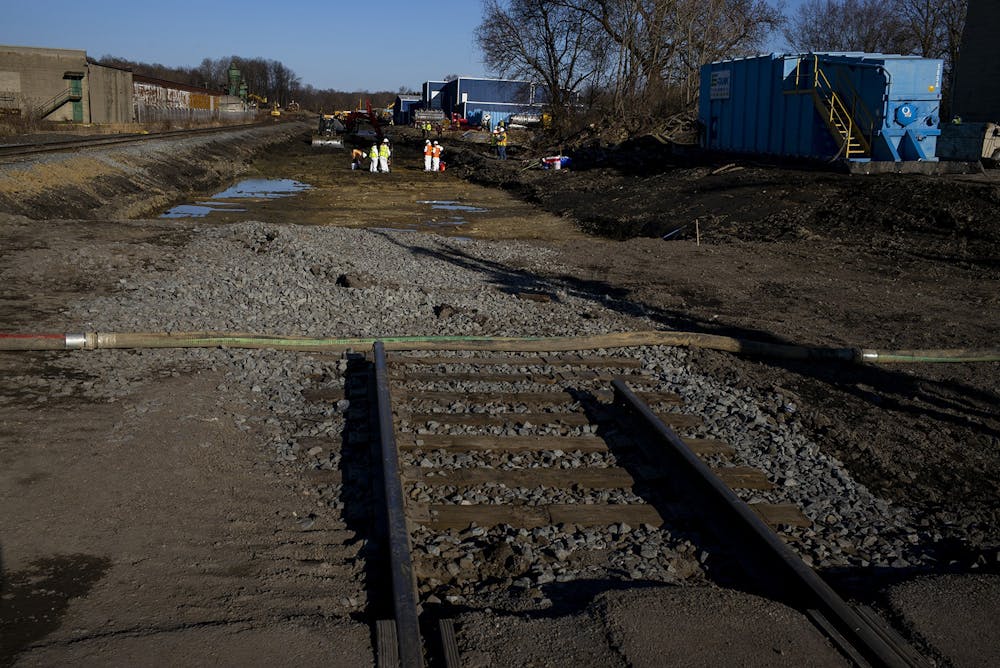When a train operated by Norfolk Southern carrying toxic chemicals was derailed in eastern Ohio, nearly 2,000 residents of East Palestine were told to evacuate due to the threat of an explosion.
There were 150 railcars en route to Conway, Pa., 20 of which carried hazardous materials such as vinyl chloride, butyl acrylate and ethylene glycol. After 38 cars derailed and 12 more were damaged, chemicals were released into the air and diverted into a nearby trench.
That was in early February.
It’s been nearly two months since the train derailed — and the environmental repercussions of the incident have continued to come to light.
While officials reported no clear evidence of groundwater contamination due to the incident, residents who have returned to the area have reported symptoms such as headaches and vomiting. The clean up of the crash sites involves shipping millions of gallons of wastewater and contaminated soil out of state.
It hasn’t been made entirely clear to what extent the derailment was due to gross negligence of Norfolk Southern or the train operators – in fact, the preliminary findings from the National Transportation Safety Board seem to dismiss this case as nothing more than a fluke accident.
But we’ve seen these “fluke” accidents happen before – caused by a lack of regulation and oversight, ultimately leading to dangerous environmental disasters.
Another “fluke” accident? The notorious Duke Energy coal ash spill of 2014 — a pipe that randomly burst leading to ash release from one of Duke Energy’s coal ash ponds into the Dan River. Despite a similar spill in Kingston, Tenn., six years prior, the U.S. Environmental Protection Agency's coal ash rule (known as Coal Combustion Residuals rule) didn't go into effect until 2015.
The Dan River incident polluted a major watershed, leaving Duke Energy to foot a $3 million bill in damages. The damage done to Duke Energy’s bottom line is minuscule compared to the damages done to the land, and people, of North Carolina.



